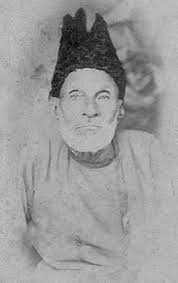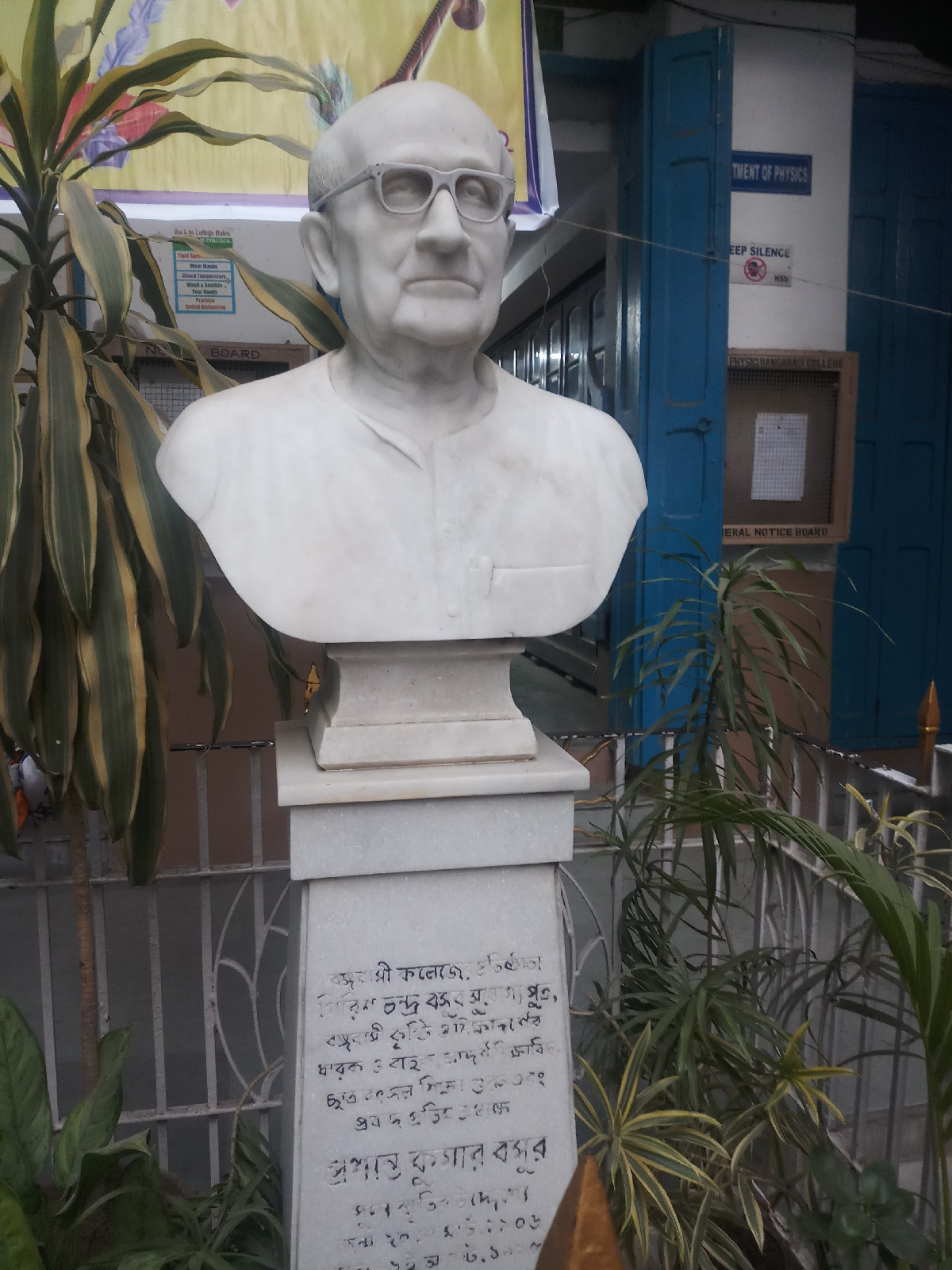Principals of Bethune College
Bethune College, established in 1878 boasts of being the first women’s college in Asia. Today it continues to shape women who are not only self-reliant but also great achievers in their chosen fields worldwide. The journey from its inception to the present times is indeed fascinating and is interwoven with the history of women’s emancipation in Bengal.
John Elliot Drinkwater Bethune arrived
at Kolkata in April 1848 on being appointed as the legislative member of the
Supreme Council of India. Until then, the East India Company had taken little
initiative to introduce female education in the country, although a demand for
institutionalized female education had started, resulting in the setting up of
a girl’s school. Bethune took charge of the unpaid office
of President of the Council of Education and founded the Calcutta Female School
in 1849. The foundation stone of Bethune School building was laid on
November 6, 1850. The main ceremony was conducted by Sir John Hunter Littler,
Deputy Governor of Bengal and saw the planting of Asoka Tree sapling by Lady
Littler. This tree still stands at the college premises.
Bethune said: "The choice of this particular tree has
not been made unadvisedly or without a meaning. I am told its Bengali name may
be not unfitly paraphrased as 'The Tree of Gladness.' It is commended for this
day's ceremony not only by the gracefulness of its foliage, and the surpassing
beauty of its flowers, but also because it is held in especial honour among
Hindu women... I propose therefore henceforth that the Asoka tree be made the
symbol of female education in India...I suggest that an Asoka tree be planted as
a new tree of liberty to remind us of the bond of fellowship which unites our
labour in one cause." On 12th August, 1851 the
illustrious life of Sir J. E. D Bethune ended at the age of 50 years.
The year 1878
saw an unprecedented event when Kadambini Bose became the first woman to sit
for the entrance exam. Owing to her success, Lieutenant Governor decided to
appoint a lecturer qualified to teach the first arts course and consented to
raise the status of the school to a higher academic order. Well-known male
teachers were appointed to teach science and humanities. Kadambini Bose and
Chandramukhi Basu (a student of the Dehra Dun School for Native Christian
girls) passed the F.A. in 1880 and were awarded government scholarships to
pursue studies for their degrees at Bethune School, and both received their
B.A. in 1883, thus becoming the first female graduates. Kadambini Bose (married
to Dwarkanath Ganguly) went on to become the first female student of Calcutta
Medical College. Chandramukhi went on with further study, pursuing English
literature and became the first woman M.A. in 1884. The Bethune College building was established
separately in 1888. Chandramukhi Basu later became the first Lady Principal of
Bethune College, the post she held from 1886 to 1901. She was well known for
her intellectual and administrative abilities.
In 1890, His Royal Highness Prince Albert Victor, eldest grandson of
Queen Victoria, visited Bethune College. Rabindranath Tagore’s ‘Mayar Khela”
was staged for the first time by women of the Sakhi Samiti at the college in
presence of the bard.
Chandramukhi
Basu was succeeded by Kumudini Das (Khastagir) who was the Principal from 1902
to 1913 after serving for some time as Headmistress of Bethune School and later
on became the Inspectress of the schools in Dacca Circle. Her notable
contributions were creation of governing body for formulating college policies,
acquiring land for expansion, establishment of hostel and obtaining library
grants. She had an articulate, sociable and affectionate personality. The Fifth Quinquennial Review of the Progress
of Education in Bengal (1912-1913 to 1916-1917) stated that ‘The Bethune
College is the oldest Government institution for the education of girls in
India’ and saw steady increase in enrolment and imparted quality education.
Surobala Ghosh,
a graduate and teacher of Bethune College, was selected as the temporary office
bearer in 1913 and later permanently to the post till 1916. She was a dedicated
history teacher who later became the Inspectress of Schools in Kumilla.
In 1916, Anne
Louise Janau became the Principal of Bethune College. She held a graduation degree
from London University and was known for her efficient and wholehearted
devotion to college matters during its formative years. She concentrated on
expansion of premises, academic excellence, and publication of college magazine
and holistic development of women all during the tumultuous time of the First
World War.
The next
Principal Gertude Marian Wright (1918 – 1928) witnessed the extreme challenging
times of Bethune College. A graduate from Oxford University, Wright dedicated
herself to educating and empowering Indian women. Thoughts of freedom from the British
Government was rising in the minds of native citizens. Miss Wright was caught
amidst agitations arising due to students’ support of the hartal to observe the
boycott of Simon Commission on one hand and the persuasion of D.P.I to keep
college open on that fateful day. This hurt the nationalist sentiment of the
students resulting in severe bitterness among all involved. Miss Wright
painstakingly resigned from her post and subsequently left India.
Chandramukhi
Basu’s youngest sister Rajkumari Das and the former Principal of the Eden High
School, Dhaka took charge of Bethune College in 1928. She was known for her
disciplinary measures against political expression among students. She set up
vocational courses and worked for regularisation of payscale.
Tatini Das, a
senior lecturer of philosophy, served in the capacity of Principal from1934 - 1950.
She was renowned for her academic excellence, disciplinary measures, clear
vision, sensibility and administrative capabilities.
Mrinalini
Emmerson, was the grand-daughter of the first President of the Indian National
Congress. She obtained a masters degree in English literature, completed law
studies and became the first Bengali lady to obtain a flying licence. After
serving Lady Brabourne College, she was transferred to Bethune College where
she was the Principal from 1950 – 1968. She actively participated in the
promotion academic standards.
Nalini Das, the
great granddaughter of Dwarkanath Ganguly worked towards the all-round
development of the institution during her tenure from 1968 – 1974. Her vision
was to create empowered women with a deep sense of social responsibility.
Bethune College has witnessed efficient steering in the
hands of successive principals Prof. Dipti Tripathi (1974-1988), Prof. Nilima
Misra (1988-1994), Prof. Amala Dutta (1994-1997), Prof. Pushpa Misra
(1997-2002), Prof. Manimala Das (2002-2008), Prof. Manjusha Sinha Bera (OIC: 2008-2011),
Prof. Sangeeta Tripathi Mitra (2012-2015), Prof. Mamata Ray (2015-2019) and Prof.
Krishna Roy (2019 till date).
The motto of the College "Vidya Vindatey Amritam"
means 'knowledge provides immortal bliss.' Bethune College Logo has the three
glowing lamps - centrally for 'knowledge' side by side 'humanity' and
"transparency", and the wheel for 'dynamism through exercise'
constitute the emblem. Bethune College has shaped a long list of illustrious
alumnae ranging from freedom fighters, scientists, academicians, artists,
sports personalities, administrators and several other noteworthy professionals.
Today, the college offers 17 undergraduate and 6 postgraduate courses and has
been accredited at the 'A' Level by National Assessment & Accreditation
Council (NAAC) in 2015.
References
1)
Title: Bethune School & College
centenary volume, 1849-1949.
Editor: Dr. Kalidas Nag Associate
editor: Lotika Ghose
Author: Bethune School and College
(CALCUTTA)
Publisher: S.N. Guha Ray at
Sree Saraswaty Press, 1949
https://archive.org/details/BethuneSchoolAndCollegeCentenaryVolume18491949/page/n31/mode/2up
2)
Title: The Changing Role of Women in
Bengal, 1849-1905
Princeton Legacy Library
Author: Meredith Borthwick
Publisher: Princeton University
Press, 2015
Originally published in 1984
3)
Paper on “Womens’s Education and
Empowerment in Colonial Bengal by Rachana Chakraborty Book Title : Responding
to the West ; Editor : Hans Hagerdal ; Publshed by: Amsterdam University Press
4)
http://en.banglapedia.org/index.php?title=Bethune,
John Elliot Drinkwater
5)
https://en.m.wikisource.org/wiki/Bethune,
John Elliot Drinkwater_(DNB00)
6)
http://www.bethunecollege.ac.in/
7)
Title:
In the footsteps of Chandramukhi
Editors: Uttara Chakraborty, Kumkum
Chattopadhyay
Bethune College Publication, Kolkata
Originally published: 2004




Comments
Post a Comment